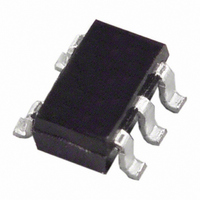AD8515ART-REEL Analog Devices Inc, AD8515ART-REEL Datasheet - Page 15

AD8515ART-REEL
Manufacturer Part Number
AD8515ART-REEL
Description
IC AMP GP R-R CMOS 5MHZ SOT23-5
Manufacturer
Analog Devices Inc
Datasheet
1.AD8515ARTZ-REEL7.pdf
(16 pages)
Specifications of AD8515ART-REEL
Rohs Status
RoHS non-compliant
Design Resources
Extending the Capacitive Input Range of AD7745/AD7746 (CN0129)
Amplifier Type
General Purpose
Number Of Circuits
1
Output Type
Rail-to-Rail
Slew Rate
2.7 V/µs
Gain Bandwidth Product
5MHz
Current - Input Bias
5pA
Voltage - Input Offset
1000µV
Current - Supply
410µA
Current - Output / Channel
20mA
Voltage - Supply, Single/dual (±)
1.8 V ~ 5 V
Operating Temperature
-40°C ~ 125°C
Mounting Type
Surface Mount
Package / Case
SOT-23-5, SC-74A, SOT-25
-3db Bandwidth
-
Available stocks
Company
Part Number
Manufacturer
Quantity
Price
Company:
Part Number:
AD8515ART-REEL7
Manufacturer:
AD
Quantity:
1 180
Part Number:
AD8515ART-REEL7
Manufacturer:
ANALOGIC
Quantity:
20 000
WIEN BRIDGE OSCILLATOR
The circuit in Figure 38 can be used to generate a sine wave, one
of the most fundamental waveforms. Known as a Wien Bridge
oscillator, it has the advantage of requiring only one low power
amplifier. This is an important consideration, especially for battery-
operated applications where power consumption is a critical issue.
To keep the equations simple, the resistor and capacitor values
used are kept equal. For the oscillation to happen, two conditions
have to be met. First, there should be a zero phase shift from the
input to the output, which happens at the oscillation frequency of
Second, at this frequency, the ratio of VOUT to the voltage at the
positive input (+IN, Pin 3) has to be 3, which means that the
ratio of R11:R12 should be greater than 2.
f
OSC
=
C10
1nF
2
π
Figure 38. Low Power Wien Bridge Oscillator
R10
1
×
C10
R13
1kΩ
R12
1kΩ
3
2
1nF
C9
+
–
V+
V–
VEE
VCC
U10
2.05kΩ
AD8515
1kΩ
R19
R11
1
Rev. D | Page 15 of 16
High frequency oscillators can be built with the AD8515,
due to its wide bandwidth. Using the values shown, an oscilla-
tion frequency of 130 kHz is created and is shown in Figure 39.
If R11 is too low, the oscillation might converge; if too large,
the oscillation diverges until the output clips (V
f
OSC
= 130 kHz).
Figure 39. Output of Wien Bridge Oscillator
S
= ±2.5 V,
AD8515











